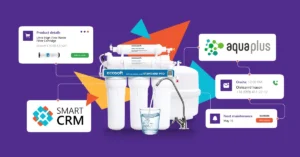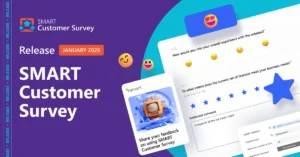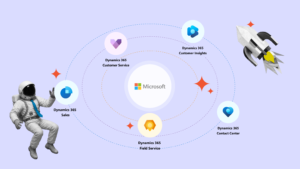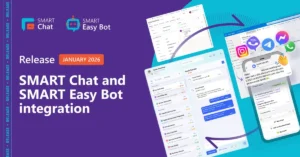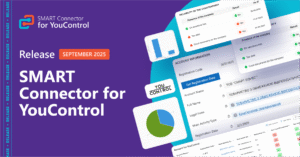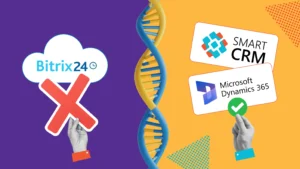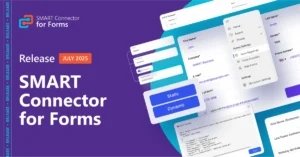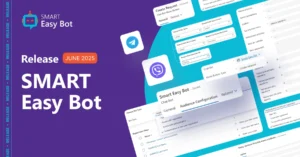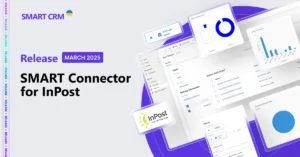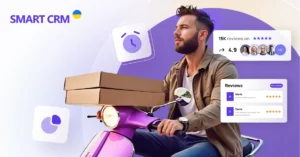CRM for Non-Profits and Charities: Why Good Requires Automation Too
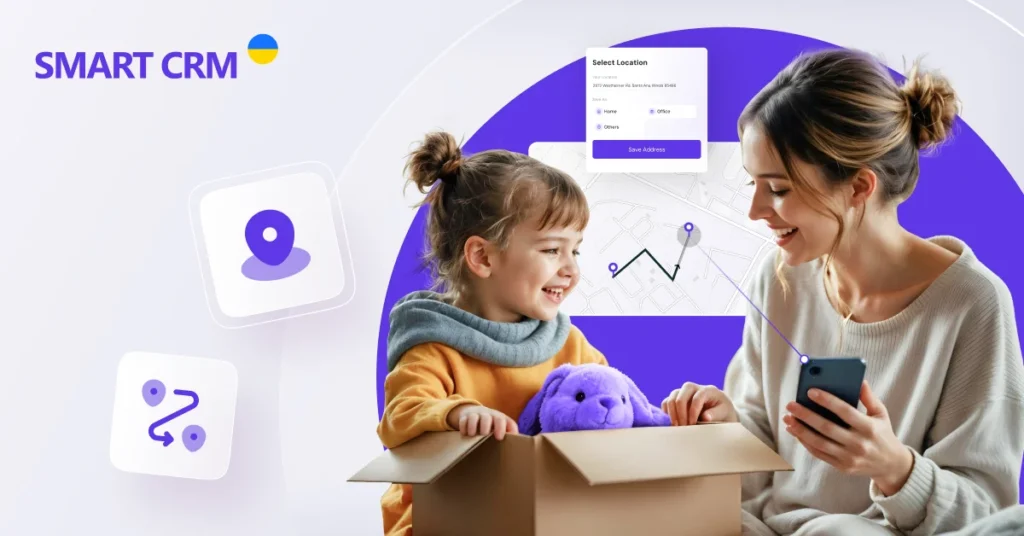
In the modern world, non-profits and charities operate in an environment where society’s expectations regarding transparency, efficiency, and trust are constantly growing. Donors want to be sure that their support will be used exactly where it is needed. Volunteers strive to clearly manage their time and tasks. The organizations themselves must ensure that they comply not only with moral standards but also with technological ones. In this context, CRM systems for non-profit and charitable organizations are becoming indispensable tools that positively transform charitable activities.
Benefits of implementing CRM for non-profits and charities
Using CRM for charitable organizations allows you to organize routine processes, saving time for the team and leaving more opportunities for strategic work. For example, the Dobrodiy Club charity notes that before the implementation of the CRM system, launching a questionnaire could take up to three days with all the verifications, uploading, and preparation. After the implementation, this time was reduced to one day, minimizing the loss of human resources.
But one of the most important benefits of CRM is that it promotes transparency, which is a key aspect of trust in a charity. The Fundraising CRM system makes it easy to track the movement of funds from the receipt of donations to their use. Such data can quickly be turned into official reports for donors who see the real impact of their contributions. Interaction with volunteers is no less important. The CRM system allows not only to coordinate their tasks, but also to develop professional relationships, helping to create an atmosphere of support and involvement, which motivates volunteers to remain part of the organization.
Principle of using CRM by non-profits and charities
Although the term “sales funnel” may sound unusual when it comes to charities, this approach is successfully applied here. In the CRM donor database, each donor goes through a certain path: from the first contact to repeated participation in charity campaigns. The CRM donor management system helps not only to organize this process, but also to minimize losses at each stage: be it interest, attraction or retention. This approach systematizes interaction with donors. Thanks to this, employees have more time for personal communication with each volunteer, because the system takes over routine processes.
Charitable organizations face the challenges of effective contact management, fundraising, interaction with donors, volunteers, and reporting to society. A CRM system helps solve these tasks through automation, analytics, convenient collection, systematization, and storage of data. We suggest looking at how this happens in more detail using the example of the SMART CRM system.
Why should charities care about Customer Relationship Management?
How and what processes does SMART CRM help organize and optimize for charities? It is a comprehensive platform for customer service, sales and marketing, helping charities cover the entire stack of key tasks.
CRM functions for non-profits and charities:
- Contact management: Storing information about donors, volunteers, partners, and beneficiaries in a single database; Segmentation by participant types, level of support or involvement; Saving the history of interaction with donors and volunteers.
- Donation management: Tracking the donation history of each donor in the CRM; Automatic sending of thanks or receipts; Creating reports on total receipts and forecasting future donations.
- Event management: Planning and managing charity events (fundraisers, marathons, auctions); Collecting participant registrations and automating reminders.
- Automation of communication: sending personalized emails, newsletters or messages; Maintaining active communication with donors and volunteers.
- Analysis and reporting: Tracking campaign effectiveness: how much money has been raised, which channels work best; Building analytical dashboards for making informed decisions.
- Attracting new donors: identifying potential donors by analyzing the behavior of existing ones; Creating special campaigns to attract support based on donor data in the CRM.
- Integrations with other systems: Connection to payment systems for easy transfers; Integration with social networks to popularize initiatives.
CRM tools that will be useful for non-profits and charities
Thanks to numerous integrations from SMART business, CRM becomes a flexible platform for scaling, automating and optimizing important projects.
Integration allows you to combine various aspects of your business into a single ecosystem, which is especially important for those who work in a fast and multitasking environment, such as, say, military volunteer initiatives. For example, SMART CRM has integrations with logistics applications such as Nova Poshta або Ukrposhta, which allows you to automatically generate and track the status of a shipment, tracking codes, delays or delivery time. Also, for example, if CRM receives a request to deliver bulletproof vests to a certain unit, the system can automatically transfer the order to the logistics application and create a waybill. In these cases, every minute is considered critical, so the faster the process of receiving and transferring the necessary items to the military is built, the higher the percentage of lives saved will be.
Meanwhile, SMART CRM integrations with social media platforms such as Facebook, Instagram, and Telegram allow you to organize fundraising campaigns as efficiently as possible and maintain constant contact with your donor base. For example, CRM can automatically import contact details of users who have donated via social networks, segment them by engagement level, or send personalized thank you messages. In addition, these integrations allow you to track the effectiveness of advertising campaigns on social networks. The system shows which channels provide the greatest influx of donations or volunteers, which allows you to adapt marketing strategies and focus efforts on effective platforms.
In addition, integration with payment systems such as PayPal or Monobank allows you to automate the acceptance of donations. After all, it is important that the CRM can automatically register each contribution, saving data on the donor, amount, and time of the transaction. This simplifies the creation of financial reports and allows you to quickly send thanks to increase trust and audience engagement. This approach makes the movement of funds as transparent as possible, thereby allowing charities to assure donors of their honesty.
And CRM integrations with analytics platforms like Google Analytics or Power BI allow you to track campaign effectiveness and make decisions based on up-to-date data. SMART CRM, with its wide range of native seamless integrations, helps charities work faster, more transparently, and more cohesively. This not only increases trust in the organization but significantly increases its impact.
Setting Priorities: What to Consider When Choosing and Implementing a CRM System for Non-Profits and Charities

How to choose a CRM system that will suit your organization’s needs? First, you need to determine what your implementation goal is. For example, SMART CRM, built on the Microsoft Power Platform, can be suitable for both charitable organizations and commercial structures. CRM for charitable organizations can be adapted to non-financial performance indicators, such as impact on society or trust. For commercial organizations, the key focus is on profitability and sales growth. These systems may look similar, but their functions and settings differ significantly depending on the user’s needs. Perhaps someone will focus on external interaction with “clients”, and someone – on internal communication. Depending on this, different integrations and a differently customized system interface will be selected.
Choosing and implementing a CRM system for a charitable organization is a strategic process that requires a clear understanding of the organization’s goals, needs and resources. It consists of the following steps:
- Defining the goal: The first step is to define what specific tasks the CRM should solve. A charity may want to establish transparent reporting for donors, automate interactions with volunteers, improve donation management, or increase the effectiveness of its campaigns. Clearly defined goals will help you understand which features are critical and which are optional.
- Market research: The organization analyzes available solutions, considering factors such as the cost of the CRM system, functionality, the ability to integrate with other platforms, and ease of use. It is important for charities to pay attention to CRMs that specialize specifically in their needs, such as systems with integrations for collecting donations, managing events, or tracking deliveries. Systems such as SMART CRM offer a ready-made solution with logistics, analytics, and marketing integrations.
- Planning: Before implementing the system, it is necessary to carefully plan the process of integrating the CRM into the daily activities of the organization. This involves data preparation: collecting, cleaning and structuring information about donors, volunteers, partners and recipients. Having high-quality and organized data will ensure their correct migration to the new system and minimize the risk of errors. Of course, the process is quite painstaking and can result in accidental data loss, so experts from the SMART business team usually help with the use of SMART CRM.
- Team training: Even the best CRM will not produce results if employees cannot use it effectively. Conducting training, creating manuals and providing ongoing technical support at the start will help to integrate the system into the work process faster. It is important to emphasize that CRM is not only a technical tool, but also a way to change approaches to work, making it more structured and effective.
- Monitoring progress: After implementing CRM, a system for monitoring its effectiveness should be established. The organization should regularly evaluate how the new system affects its activities, whether the set goals are achieved, and whether changes to settings or processes are needed. Feedback from users will help to identify weaknesses and quickly eliminate them.
Selecting and implementing a CRM system is a multi-tasking process with a gradual transformation of the approach to the key processes of the organization. However, a properly selected system can become a powerful tool for achieving the organization’s mission, increasing its transparency and efficiency, as well as creating long-term and trusting relationships with donors and volunteers. SMART business not only offers implementation services but also shares its expertise and helps you decide on the necessary functionality that would be most relevant to the tasks of your organization.
Real results of using CRM in charities: bringing goodness to the world
CRM allows you to see not only individual aspects of work, but also a complete picture of the impact of the organization. Thus, technologies become not just a tool, but a real partner in achieving great changes. The Dobrodiy Club charity was convinced of this, having decided to implement a CRM system to maximize the quality of assistance to children. SMART business offered the organization a CRM system developed on one of the best Low-code/No-code platforms, Microsoft Power Platform. The solution was developed and adapted to the unique needs of Dobrodiy Club, thanks to which the organization was able to optimize its processes as follows:
- All applications for help were collected in one place: when implementing the system, a form was created based on Google Forms, and already at the first launch of registration, Dobrodiy Club received more than 10,000 applications for help.
- The CRM system was integrated with the foundation’s website, which made it possible to build a convenient registration process for those wishing to receive assistance, and applications stopped getting lost in social networks.
- Centralized maintenance of personal cards of those registering for assistance made it possible to “filter out” repeated applications.
- Receipt of the necessary documents for receiving assistance in the personal cards of beneficiaries simplified the work of volunteers involved in verifying applications.
- The reporting process to the foundation’s donors became faster thanks to a centralized and organized data system.
- Integration of the CRM system into the postal operator’s account made it possible to update the status of the sent parcel for each individual beneficiary.
The results of the CRM system implementation exceeded expectations: in the first year and a half of the full-scale war, Dobrodiy Club was able to support more than 90,000 children, transferring about 200 tons of food for families with minors who found themselves in a difficult situation. This figure only continued to grow, and now the Dobrodiy Club continues to provide not only physical but also psycho-emotional support to children in need even more effectively. Such results only motivate the SMART business team to further develop solutions that will help optimize the processes of charitable organizations and allow volunteers to fully concentrate on helping people.
If you want to automate your processes of spreading kindness and sincerity, SMART business experts will be happy to help you choose the tools you need for this.
